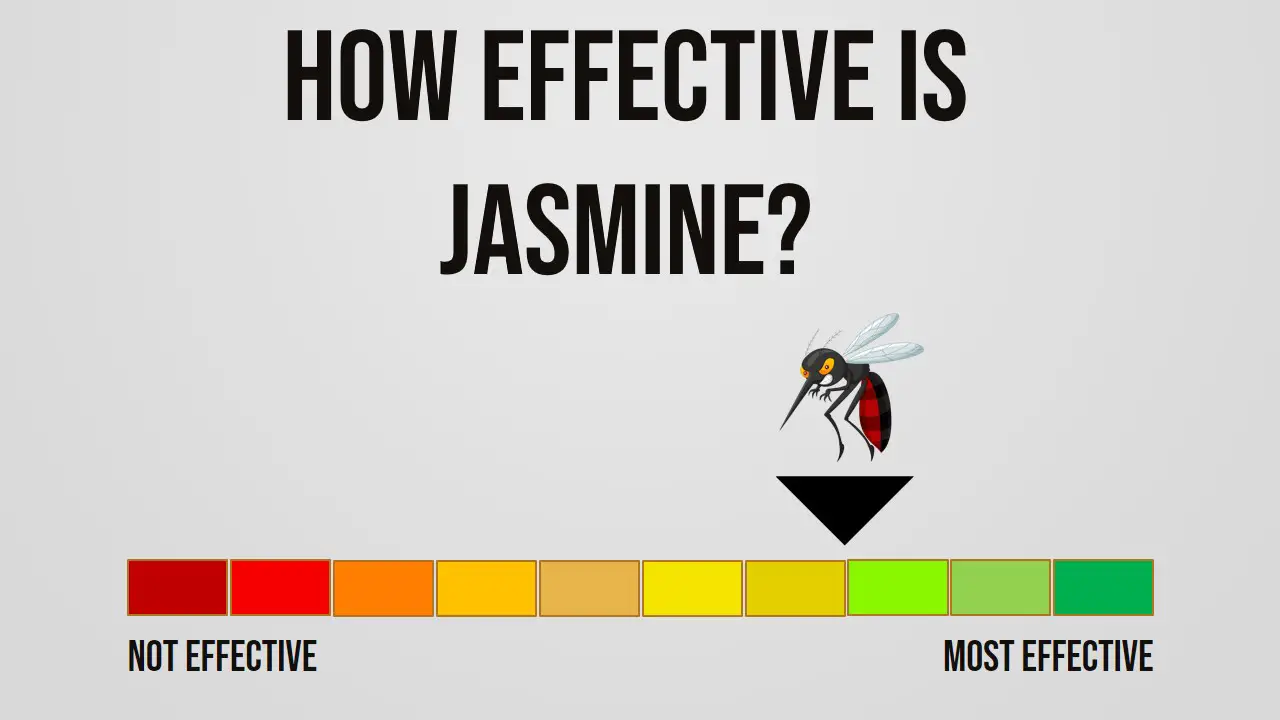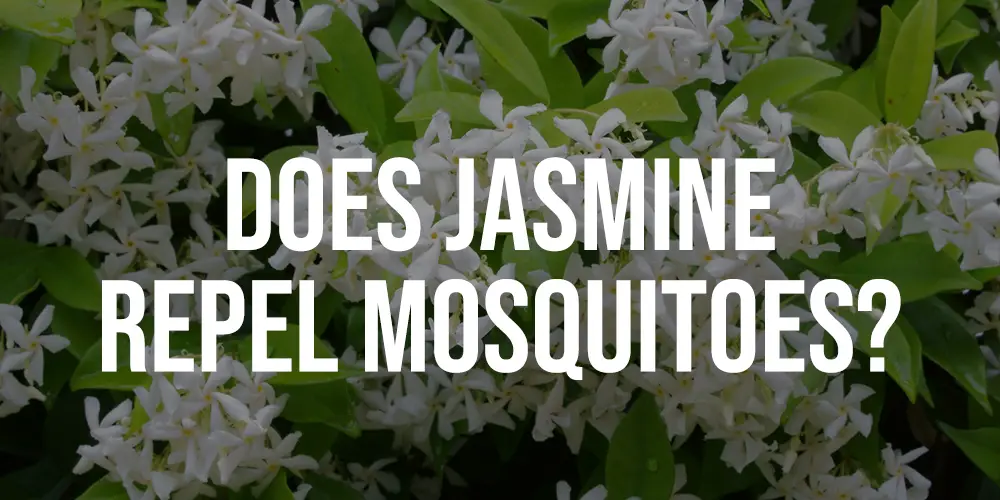There is a lot of debate surrounding the effectiveness of jasmine when it comes to repelling mosquitoes. Some people swear by its results, while others are not convinced that it truly works. However, a significant number of studies have been conducted on the topic and the results paint an interesting picture.
According to one test conducted in Thailand, jasmine was found to be effective in repelling mosquitoes for up to two hours. This is significant because it means that jasmine can provide protection against mosquito bites during the peak biting times for these insects.
Another study, this one conducted in Brazil, found that a lotion made with jasmine oil was able to offer some protection against mosquito bites for up to eight hours. However, it should be noted that this study also found that citronella was more effective at repelling mosquitoes than jasmine.
Clearly, the jury is still out on whether or not jasmine really does repel mosquitoes. Some studies have found that there is a slight benefit to using jasmine, while others have not found it to be effective. However, if you are looking for a natural way to try and repel mosquitoes, jasmine may be worth a shot. At the very least, it will make your home or garden smell nice!

Navigation
What Is The Jasmine Plant?
The Jasmine Plant is a species of flowering plant in the olive family Oleaceae. It is native to tropical and warm temperate regions of the Old World. The Jasmine Plant has been cultivated for centuries for its attractive flowers and sweet scent.
The name jasmine is derived from the Persian word yasamin, which means “gift from God”. Jasmine is mentioned in the Bible and has been associated with royalty and luxury since ancient times.
The Jasmine Plant is an evergreen shrub or vine that can grow to a height of 20 feet (6 meters). It has glossy, dark green leaves and white or pale pink flowers that bloom in clusters. The flowers open at night and emit a strong, sweet scent.
The Jasmine Plant is widely cultivated for its flowers and scent throughout the world, including in India, China, Egypt, Japan, Italy, and France.
The extract of the Jasmine Plant is used in perfumes and cosmetic products due to its pleasant fragrance. It is also used as a flavoring agent in food and beverages. Jasmine tea is a popular type of tea made with Jasmine flowers. The oil of the Jasmine Plant is used in aromatherapy and has some medicinal properties. It is used to treat anxiety, depression, and insomnia.
The Jasmine Plant is considered to be a symbol of love, purity, and innocence. It is often used in wedding bouquets and other arrangements. The flowers of the Jasmine Plant are also used to make jasmine oil, which is used in perfume and massage oils. The Jasmine Plant is a beautiful and fragrant addition to any garden or home.
Jasmine vs Citronella Oil for Mosquito Repellent
Many people have been experimenting with different kinds of natural repellents for mosquitoes as an alternative to the chemical-based products available in stores. This has led to the discovery that there are various types of oils, such as jasmine and citronella oil, which can help keep mosquitoes at bay. However, while both oils are quite effective in deterring mosquitoes, there are certain differences between theme two.
Jasmine oil is known for its pleasant fragrance and sweet aroma, which makes it a popular ingredient in perfumes, cosmetics, and other products. Studies have shown that this oil also has strong mosquito repellent properties, thanks to its chemical compounds like jasmonates and linalool. Jasmine oil is also relatively cheaper than citronella oil, which makes it a more budget-friendly option for those looking for a natural mosquito repellent.
Citronella oil, on the other hand, is more commonly used in mosquito repellents due to its higher efficacy. This oil contains powerful chemicals like geraniol and citronellol, which are known to effectively repel mosquitoes. However, citronella oil also has a strong odor that can be quite unpleasant for some people.
In general, both jasmine oil and citronella oil are effective mosquito repellents, but they do have some differences in terms of their price, smell, and efficacy. So, it really depends on your personal preferences as to which one you would prefer to use.
Ultimately, the best way to keep mosquitoes away is by using a combination of different natural repellents and taking other preventive measures, like wearing clothing that covers your skin.
Jasmine Oil for Mosquitoes
Jasmine oil can be used as a natural mosquito repellent. It has a strong, sweet smell that Mosquitoes find offensive. You can apply jasmine oil to your skin or clothing, or diffuse it in the air to keep mosquitoes away.
To use jasmine oil as a mosquito repellent, mix a few drops with carrier oil like jojoba or coconut oil, and apply it to your skin. You can also add a few drops of jasmine oil to your diffuser to keep mosquitoes away from your home. If you’re going to be outside for an extended period of time, you can also apply jasmine oil to your clothing to keep mosquitoes at bay.
Jasmine oil is a natural and effective way to keep mosquitoes away, and it has the added benefit of smelling great! With just a few simple steps, you can enjoy the outdoors without worrying about Mosquitoes.
How to Grow Jasmine
Jasmine is a beautiful and fragrant flowering plant that can add a touch of elegance to any garden. Though it can be delicate, with proper care jasmine will thrive and provide you with endless blooms. Here are some tips on how to grow jasmine:
- Pick a sunny spot in your garden for your jasmine plant. Jasmine prefers full sun but will tolerate partial shade.
- Prepare the soil by loosening it with a shovel and adding some compost or manure. Jasmine likes well-drained, fertile soil.
- Plant your jasmine in a hole that is deep enough to cover the roots and water well.
- Jasmine is a climbing plant, so you will need to provide support for it to grow on. Trellises, fences, or walls are all good options.
- Water your jasmine regularly, especially during dry spells. Jasmine likes moist soil but too much water can kill the plant.
- Fertilize your jasmine regularly to keep it healthy and promote vigorous growth. A balanced, slow-release fertilizer is best.
- Keep an eye out for pests like aphids and spider mites, which can be treated with insecticidal soap or other natural remedies.
- Jasmine is a beautiful plant that can add a touch of elegance to any garden. With proper care, jasmine will thrive and flower year after year. Follow these tips on how to grow jasmine and you’ll be enjoying the fragrance and beauty of this lovely plant in no time!

